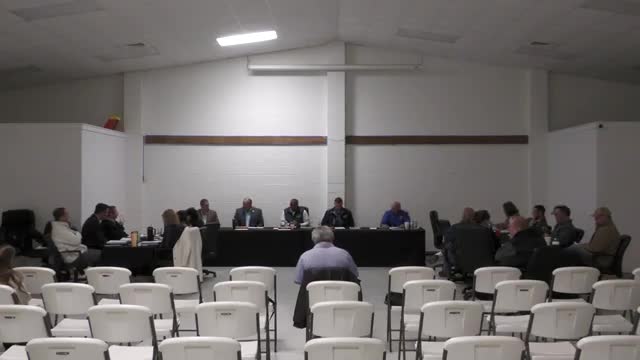Gulf County commissioners discuss dry dock, port incubator and school partnerships for workforce
Get AI-powered insights, summaries, and transcripts
Subscribe
Summary
Commissioners discussed courting a dry dock operation and using county port land to create an industrial incubator tied to local schools and workforce training, and identified state grant programs as possible funding sources.
Gulf County commissioners discussed pursuing a dry dock operation and related industrial development at county port property, and suggested linking the effort to local school-based workforce training programs.
The discussion, led during a county work session attended by Chairman Quinn, centered on using port-adjacent land for an incubator for ship maintenance, repair and overhaul jobs and on seeking state grants to help fund the initiative. Commissioners said the county could pursue partnerships with schools to certify students for the specialized jobs such a facility would create and recommended engaging the port authority in land-use planning.
Commissioners framed the effort as a regional economic-development niche stretching from Tampa to Mobile with a gap in maintenance, overhaul and repair facilities. They identified high-paying technical trades tied to ship propulsion and painting as potential job generators and suggested the county position itself to attract firms and training programs that would retrofit and service vessels.
Speakers raised funding and political strategy points. They recommended pursuing the Triumph Gulf Coast grant and other state-level sources, but warned the county’s chances could be slow without strong legislative engagement and clear workforce-certification pathways tied to local schools. Commissioners proposed presenting the need to the county’s legislative delegation and adjusting the county’s legislative platform during the upcoming budget cycle.
The board also discussed coordinating with the port authority on land allocation and suggested an incubator building to house multiple small firms. Commissioners urged outreach to potential partners such as Fortis (referred to during the session) and nearby technical programs to create training pipelines. One speaker noted the potential to use certifications that high school students could obtain, and urged the superintendent’s office to be part of the push.
Discussion included related infrastructure and community impacts. Commissioners referenced the county airport and emergency operations functions as complementary to the industrial vision, and urged analysis of how freight and fixed-wing emergency access would operate alongside industrial activity. They also noted concerns about competing regional actors and the need to show clear local benefits for everyday residents when making legislative requests.
No formal motions or votes were recorded on the dry dock or incubator concept during the session; the item was presented as a conversation and planning exercise with direction to pursue outreach and grant research.
The board said next steps should include staff and partner outreach, preliminary land-use vetting with the port authority, and targeted engagement with the school district and the county’s legislative delegation to pursue grant funding and certification pathways.
